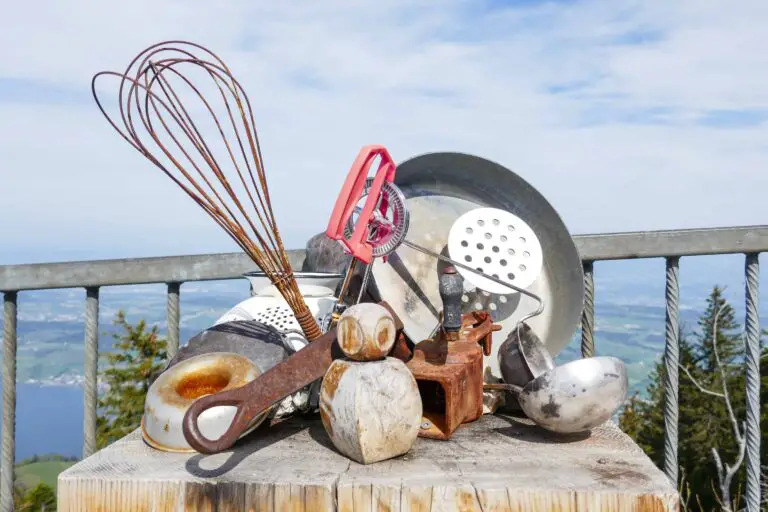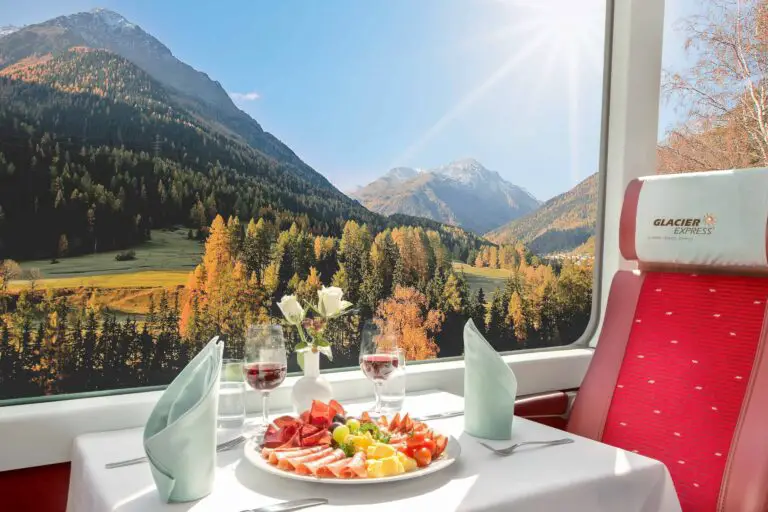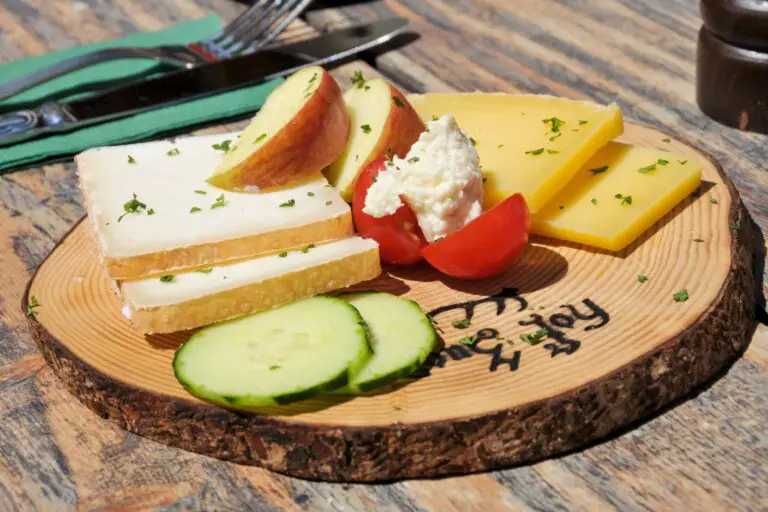Swiss cuisine
Characteristics of Swiss cuisine
Precision and accurate preparation characterize Swiss cooking. Fresh organic products and herbs are used as much as possible. These products often originate from Switzerland. Swiss cuisine today is mainly based on traditional recipes.
Cheese, cream and chocolate
Cheese is used a lot in all sorts of different recipes like fondues and raclette, soups, soufflés, salads and even sweet dishes. Besides cheese, butter and cream are used as well. These dishes were originally prepared for farm workers, in order to offer them a nutritious meal.
Besides cheese, Swiss chocolate is famous too. It’s for sale in flat bars and many other shapes. In addition, it’s used for desserts, in ice cream and cookies – pretty much however you like!
How and where to discover Swiss food
Swiss restaurants and supermarkets are an excellent way to explore Swiss cuisine. In addition, there are Swiss culinary day tours that allow you to learn a lot about cheese and chocolate within a short time. You can dine on board of trains and boats as well.
Typically Swiss dishes
It is hard to name typical national dishes. The majority of Swiss recipes is formed by the numerous regional specialties.
Switzerland is known for its famous national dish called rösti (once a regional dish too): chopped grated potato. It can be found in many different regional varieties, both with and without meat. Common ingredients are bacon, onions, cheese and mushrooms.
Some other well-known Swiss dishes are:
- ‘Geschnetzeltes’: sliced pieces of meat (pork, veal, chicken) served with a sauce and often rösti.
- Cheese fondue: various kinds of Swiss cheese melted in a pot. Pieces of bread and vegetables are dipped into the cheese using a long fork.
- ‘Raclette’: various kinds of food (bread, mushrooms, meat, potatoes) covered in molten or scalloped cheese. The melting can be done by using small slices of cheese that everyone melts in their own small pan placed on a raclette set. The more classical method is to take a much larger piece of cheese, place it in the holder of a raclette device with a heating element, and scrape off the molten cheese from time to time.
The recommended drink along with cheese fondue or raclette is tea, because it stimulates the digestion of the cheese. White wine or beer are common drinks too.
Swiss breakfast: müesli
‘Müesli’ is popular for breakfast around the world and for sure in Switzerland. People have been eating wheat based dishes for thousands of years. But it was the Swiss Dr. Bircher-Benner who introduced the modern müesli as a breakfast alternative in 1900: Birchermüesli.
There are many variants. Common ingredients are rolled oats, milk, yogurt, fruits (e.g. unpeeled apple), nuts and a bit of lemon juice. A nice saying is “Ein Müesli am Morgen vertreibt Kummer und Sorgen”: a müesli in the morning expels sorrow and worries.
Swiss beer
Swiss beer is not easily available abroad. Beer lovers are advised to visit a local supermarket or liquor store and try some of the really nice beers brewed all over Switzerland. Or visit a local brewery to see how it’s done.
Some well-known brands are Calanda (from the canton of Graubünden), Eichhof (from Lucerne), Feldschlösschen (from Rheinfelden near Basel) and Rugenbräu (from Interlaken), but there’s much more.
Swiss wine
Swiss wine is commonly available throughout the country, but not so much outside of Switzerland. If you love wine, then grab your chance and pick a Swiss wine when going out for dinner. Many local wines are available in the supermarkets too.
Most wine originates from the vineyards in the Rhone Valley, but it also comes from other parts of Switzerland.
Free, clean water
Tap water in Switzerland is of good quality. It’s perfectly safe to drink (unless a warning not to do so is displayed) and it tastes well. There is no need to buy bottled water. You save money and help the environment by drinking tap water.
Swiss restaurants
Lunch and dinner
Many Swiss restaurants serve extensive warm lunch dishes. If you want to save money, you can order a good meal during lunchtime and have a quick bite in the evening.
Most restaurants start serving dinner from 5 to 6 PM. It is customary to have a green or mixed salad as the first course. Little or no vegetables are served with the main course.
The offer: Swiss and foreign cuisine
You’ll notice that there are also lots of Italian dishes like pastas and pizzas. And many restaurants do not only offer typically Swiss and Italian dishes, but also many types of Western/European food including fries, fish and vegetarian meals.
Larger towns also have international restaurants serving Indian, Chinese and other kinds of food. Fast food restaurants are available too.
Service costs, VAT and tipping
Service and VAT are included in the prices. There is no need to tip. In case of good service, it is common to round up the amount just a bit, but that is not required at all.
Swiss supermarkets
The assortment
There is no need to worry about getting the food that you prefer. Supermarkets in Switzerland offer a wide variety of good quality food. There is pizza, pasta, fish, meat, Asian food, bread, fruit, vegetables, dairy food, vegetarian and vegan meat substitutes and much more.
Particularly interesting are the assortments of products you’ll probably not find at home: Swiss chocolate, cheese, wine, beer and typically Swiss dishes like rösti (sealed or canned). You may notice that the origination country or region is clearly listed along with the products. Many people in Switzerland prefer local organic food, so supermarkets offer a lot of such products.
Opening hours
Most supermarkets are open from at least 8 AM to 6 PM. On Saturdays, they usually close a bit earlier than on weekdays. Some are closed on Sundays and many are closed on public holidays. In smaller villages, supermarkets used to close for an hour or two during lunch time, but that’s getting rare. Find more info in our Switzerland shopping guide.
Swiss supermarket chains
- Alnatura (by Migros) (biological supermarket)
- COOP
- Farmy (online ordering of local Swiss products)
- Migros
- Spar
- Volg
Cheaper Swiss supermarkets:
Convenience stores at train and gas stations:
Vegetarian food
You can find a wide variety of vegetarian food in all supermarkets. Most restaurants offer at least one vegetarian dish; many offer (much) more than one.
Culinary trips

Culinary activities

Dining with a view
Other websites of interest
- www.about.ch: Swiss recipes
- www.weinlandschweiz.ch: all about Swiss wine
- www.bier.swiss: Swiss beer brewery association
- www.myswitzerland.com: restaurants in Switzerland
